Join As Students, Leave As Professionals.
Develearn is the best institute in Mumbai, a perfect place to upgrade your skills and get yourself to the next level. Enroll now, grow with us and get hired.

Data Analyst vs. Data Scientist: What's the Difference?
Data Analyst vs. Data Scientist: Data analysts primarily engage with structured data to address concrete business challenges. In contrast, data scientists navigate the unknown, employing advanced techniques to predict future outcomes with a focus on the more complex aspects of data.
Data Analyst
Data Scientist
DeveLearn
15 minutes
November 28, 2023
Data science and data analytics share a close relationship, yet they exhibit key distinctions. Both fields center around the manipulation of data to extract valuable insights. However, the divergence lies in their primary objectives. Data science typically encompasses the utilization of data to construct models capable of predicting future outcomes. On the other hand, data analytics predominantly concentrates on scrutinizing historical data to guide decision-making in the present.
While the demand for data professionals is unquestionably high, the distinction between a data analyst and a data scientist may not always be apparent. Although both roles involve working with data, their approaches differ significantly.

Data Analysts and Data Scientists: What do they do?
One of the primary distinctions between data analysts and data scientists lies in their approach to handling data.
Data analysts typically focus on structured data, employing tools such as SQL, R, or Python programming languages, as well as data visualization software and statistical analysis methods. Their responsibilities often include:
Collaborating with organizational leaders to identify informational needs
Sourcing data from primary and secondary sources
Cleansing and reorganizing data for analysis
Discerning trends and patterns within datasets
Presenting their findings in a comprehensible manner to inform data-driven decisions
Data scientists are often tasked with navigating the unknown, employing advanced data techniques to make predictions about the future. Distinguishing itself as a more advanced iteration of a data analyst, the role involves tasks that delve into both structured and unstructured data. Key responsibilities include:
Gathering, Cleaning, and Processing Raw Data
Designing Predictive Models and Machine Learning Algorithms
Developing Tools and Processes for Data Accuracy
Building Data Visualization Tools, Dashboards, and Reports
Writing Programs for Automated Data Collection and Processing
Data Science vs. Data Analytics: Educational Requirements
Educational prerequisites for roles in data analysis and data science differ based on the complexity and depth of the responsibilities.
Data Analyst:
A majority of data analyst positions mandate a minimum of a bachelor’s degree in disciplines such as mathematics, statistics, computer science, or finance.
Data Scientist (and Advanced Data Analysts):
Data scientists typically hold advanced degrees, commonly a master’s or doctoral degree, in specialized fields such as data science, information technology, mathematics, or statistics.
Alternative Paths:
Traditionally, a degree has been the primary route to a career in data-related roles. However, emerging alternatives cater to those without a degree or prior experience.
Professional Certificates in data analytics from reputable sources like Google or IBM, available on platforms like Coursera, offer a viable option. Completing these certificates, which can take less than six months, equips individuals with the skills needed for entry-level data analyst roles.
The Google Certificate, upon completion, provides access to a hiring consortium comprising over 130 companies.
Transitioning to Data Science:
For individuals embarking on a career in data, starting as a data analyst is often a strategic entry point. Gaining practical experience in this role can serve as a stepping stone toward advancing into the more complex domain of data science.
Data Skills for Scientists and Analysts
Data scientists and data analysts share the common thread of working with data, yet each role demands a slightly distinct skill set and utilizes specific tools. The skills integral to data science often evolve from those employed by data analysts. Here’s a look at how they compare.

Start Your Journey with DeveLearn: Data Science Career Path
Begin your foray into data science by earning a Data Analyst Professional Certificate from DeveLearn a leading data science training institute in mumbai.. This foundational step will provide you with crucial skills to initiate your career in this dynamic field.




